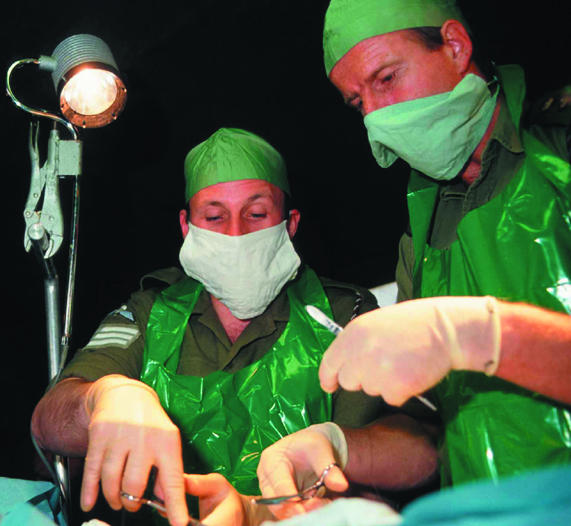The BMA wants to start a debate which could lead to a change in legislation to permit presumed consent to organ donation. The association’s medical ethics committee supports a change provided that there were safeguards to ensure that people were given a real opportunity to choose or refuse to donate. The issue is likely to be debated at the BMA’s 1999 annual meeting. The committee emphasises that there would need to be high profile publicity and public education. A policy of presumed consent would allow doctors to remove the organs of patients who died in hospital unless they had opted out. At present people must opt in by putting their names on the National Donor Register or signing a donor card. The chairman of the ethics committee, Dr Michael Wilkes, said that it would be wrong to assume that a change in the law would entirely close the gap between the organs needed and those available, “but we think it would improve the situation to some degree.” A spokeswoman for the Department of Health said, “At the moment what we want is more people to opt in, but we will be looking very carefully at what the BMA is saying.” At present one in three people carries a donor card.
Defence medicine in UK given a boost
Military medicine in the United Kingdom is being given a new lease of life by the Labour government. A reorganisation of the defence medical services announced last month will invest £140m over four years in equipment and staff, with an immediate drive to recruit 130 surgeons and anaesthetists.
A new centre of defence medicine is to be established, and there will be closer integration with the NHS entailing the closure of the Royal Hospital Haslar at Gosport, the last of the old style military hospitals. The revival follows years of cuts which a Commons select committee said were so severe as to destroy the military ethos of medicine in the armed forces.
The new government last year admitted that defence medicine was in a “sorry mess” and the review is the outcome. Its main features are: the acquisition of two 200 bed casualty receiving ships; upgrading medical facilities in the Royal Fleet Auxiliary ship Argus; bringing 800 field beds to higher readiness; an extra air evacuation flight and three new ambulance squadrons by 2005; and an extra 2000 Territorial Army personnel for the army medical services.
A campaign is now under way to recruit medical talent into the regular forces and the reserves. Shortages of medical specialists amount to 47 in general surgery, 23 in orthopaedics, and 60 in anaesthetics. The campaign will raise the profile of defence medicine in medical schools and teaching hospitals, with the possibility of bursaries to attract both doctors and nurses.
A new high level management board chaired by the vice chief of the defence staff will provide authoritative backing for the service as well as NHS representation. The three military medical wings in NHS hospitals at Plymouth, Aldershot, and Peterborough will be extended, with a fourth unit at Northallerton, Yorkshire. Haslar Hospital will be replaced by facilities in a new NHS hospital to be built in Portsmouth, which is unlikely before 2002.
The surgeon general, Air Marshal John Baird, who will have more overall command of the new medical defence structure, said, “This is not a mere shot in the arm, but a realistic strategy which will give us a medical organisation fully manned, trained, and equipped to support the armed forces on operations.”
Moving nearer to PCGs
The NHS Executive’s latest guidance for primary care groups (PCGs) in England (HSC 1998/228) sets out the timetable for groups to become operational for April 1999.
Mid-January: PCGs agree targets with the health authority for the programme of action and support for health improvement, community health service development, and commissioning
Mid-January: PCGs prepare first primary care investment plans for primary and community healthcare development; complete audit of practice based fundholders’ services
Mid-January: Agree with health authorities who commissions which hospital and community health services
31 January: Agree areas of responsibilities with which PCGs will start from April; finalise budgets for 1999-2000; agree delegated responsibility guidelines with each PCG
From 31 January: Early identification of possible primary care trusts
Beginning of March: PCGs agree framework of practice level incentives with health authorities
1 April: PCGs go live.
The circular also advises on the role of the health authority in developing effective PCGs; the functions of PCGs; how PCGs will manage their responsibilities; and the pathway for PCGs to move to primary care trusts.
JDC sets priorities for next session
The Junior Doctors Committee has set out its strategy for the coming year. Its ongoing projects include pursuing action for holders of the certificate of completion of specialist training in obstetrics and gynaecology and anaesthetics who do not have consultant posts; seeking agreement on removal and travel expenses; and improving support for junior doctors in local offices and the flow of information between head office and the regions.
It wants to negotiate an antisocial weekend supplement; make study leave policy recommendations; negotiate a hospital retainer/returner scheme; push for a consultant based service and consultant expansion; and seek higher pay for flexible trainees. The junior doctors forum on the future of flexible training will take place at BMA House in London on Thursday 25 February. Existing and potential flexible trainees are invited to attend.
New projects include negotiating the implementation of the European working time directive; encouraging the implementation of competency based assessment; and negotiating enforceable standards of accommodation and catering.
Figure.

More doctors are needed in the forces


